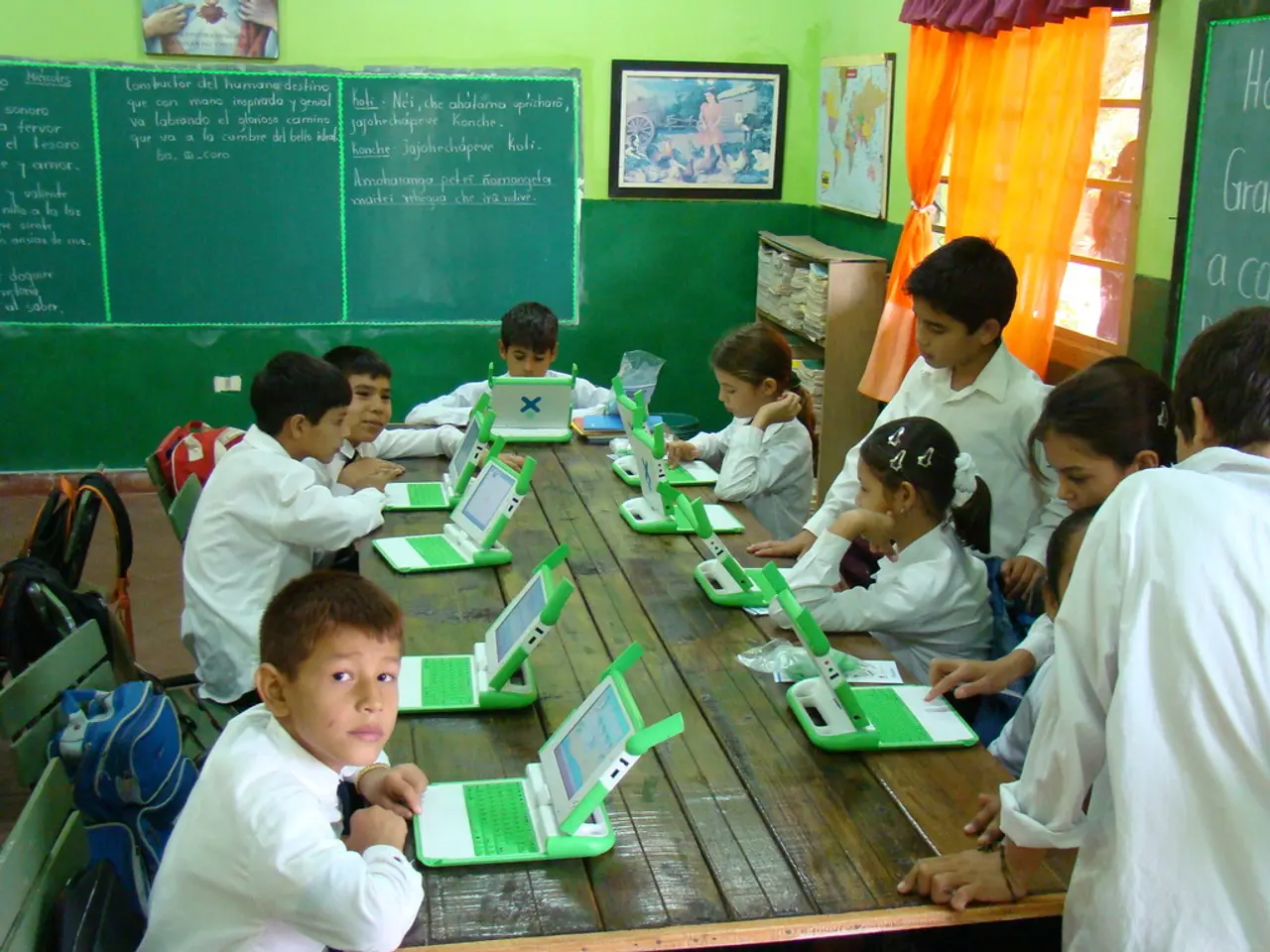Guiding Nigerian Parents Through Academic Challenges
In Nigeria, the quest for quality education has become a pressing concern, with numerous challenges hindering progress. From financial constraints to limited access to technology, the country faces a myriad of issues that require urgent attention. However, recent analyses and developments suggest that a combination of sustainable government policy, strategic public-private engagement, and harnessing digital technologies could provide a viable solution to these challenges.
One of the proposed strategies is a blended approach that combines public and private sectors. Decades of state-led education reforms have been marred by poor implementation, political interference, and unstable funding. By strengthening state capacity and fostering well-regulated public-private partnerships, Nigeria can catalyse systemic transformation. This includes supporting low-cost private schools and expanding collaboration with non-state actors such as NGOs and civil society, who are already filling governance gaps and innovating in service delivery[1].
Sustainable financing and long-term planning are also crucial. Institutionalising long-term education planning and ensuring consistent investment provides a stable foundation for policies to be executed effectively over time, avoiding the pitfalls of short-term or fragmented efforts[1]. Offering targeted scholarships to disadvantaged groups and adopting proven teaching models can increase access and improve learning outcomes[1].
Leveraging digital innovation and EdTech is another key strategy. Digital solutions provide a scalable way to overcome geographic and resource barriers. Mobile platforms and AI-powered learning applications can deliver quality education tailored to local needs, especially in remote or underserved communities. Nigeria's rapidly expanding EdTech market, driven by widespread smartphone adoption and improved 4G coverage, offers an opportunity to reach more learners with personalised and adaptive content[2][3].
Rethinking education delivery and embracing innovation is essential. Education authorities emphasise the need to transform learning environments and methods, embracing new technologies and approaches to bridge learning gaps and unlock children's potential[4].
Encouraging private sector investment in education can help establish more schools in Nigeria. Public-private partnerships can provide affordable internet services and Wi-Fi hotspots in rural areas, addressing the significant hurdle created by the fact that only 53.0% of Nigerians have access to the internet[5].
The government should also allocate more funds to education to support the establishment of quality schools and incentivise private investors to invest in education. Parents can partner with schools to understand the curriculum, seek additional resources, and participate in parent-teacher meetings to address language barriers. Exposing children to the English language through reading, watching shows, and conversing in English at home can increase their exposure to the language and make it easier for them to understand and learn in school.
Addressing the challenge of limited access to technology is essential for providing inclusive and quality education in Nigeria. By implementing these strategies, Nigeria can pave the way towards a more equitable and effective educational system, ensuring that every child has the opportunity to thrive and succeed.
References: [1] World Bank. (2021). Education in Nigeria: Achieving quality at scale. Retrieved from https://www.worldbank.org/en/country/nigeria/publication/education-in-nigeria-achieving-quality-at-scale [2] EdTech Hub. (2020). EdTech Landscape Report: Nigeria. Retrieved from https://edtechhub.org/research/edtech-landscape-report-nigeria/ [3] UNESCO. (2020). Nigeria's EdTech revolution: Scaling up access to quality education. Retrieved from https://en.unesco.org/news/nigerias-edtech-revolution-scaling-up-access-quality-education [4] Nigerian Ministry of Education. (2020). Transforming Education in Nigeria: A New Vision 2030. Retrieved from https://education.gov.ng/transforming-education-in-nigeria-a-new-vision-2030/ [5] Nigerian Communications Commission. (2021). Internet Subscribers in Nigeria. Retrieved from https://www.ncc.gov.ng/internet-subscribers-in-nigeria/
- The quest for quality education in Nigeria is a pressing concern, with parenting a crucial role in fostering learning at home, especially in environments where technology access is limited.
- In the context of Nigeria's education system, encouraging kids' learning involves addressing behavioral challenges and fostering a conducive environment for personal growth.
- To improve learning outcomes, sustainable financing and long-term planning are crucial, with strategies like institutionalizing long-term education planning and offering targeted scholarships to disadvantaged groups being championed.
- Leveraging digital innovation and EdTech is essential to address geographic and resource barriers, as mobile platforms and AI-powered learning applications can deliver quality education tailored to local needs.
- As the government works on systemic transformation, fostering well-regulated public-private partnerships can strengthen state capacity, support low-cost private schools, and expand collaboration with non-state actors.
- Parents can contribute to their children's education by partnering with schools, understanding the curriculum, seeking additional resources, and participating in parent-teacher meetings to address language barriers at home.
- By providing affordable internet services and Wi-Fi hotspots in rural areas, private sector investments can help address the digital divide, making education more accessible.
- Career development and job-search skills training can empower individuals to take control of their futures and contribute to a more productive and prosperous society.
- As Nigeria paves the way towards a more equitable and effective educational system, it can ensure that every child has the opportunity to thrive and succeed, ultimately contributing to the overall development of the family, the community, and the nation.




